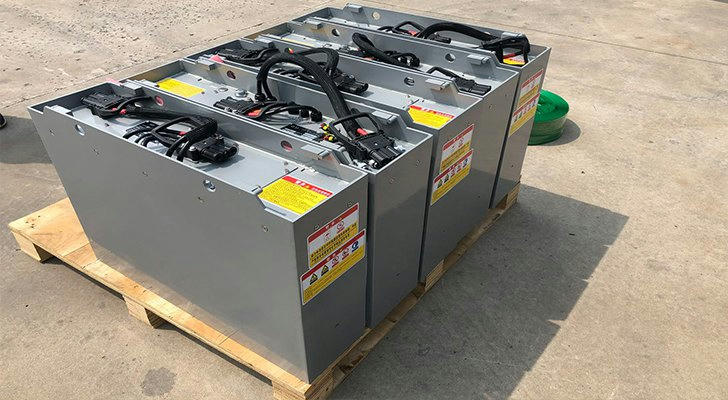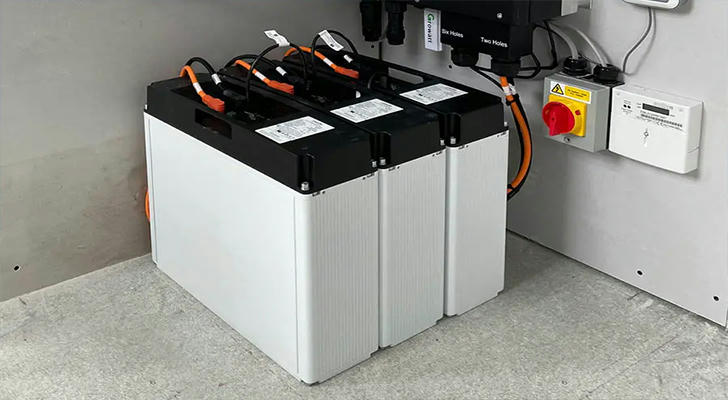How to Buy the Right Solar Battery?
As the world increasingly shifts toward renewable energy, solar power has become a popular choice for homeowners and businesses looking to reduce their carbon footprint and energy costs. However, to maximize the benefits of solar energy, many people are considering adding solar batteries to their systems. Solar batteries store excess energy generated by solar panels, allowing you to use that energy when the sun isn’t shining. But with various options available, how do you choose the right solar battery for your needs? This article will guide you through the essential factors to consider when buying a solar battery.

Understanding Solar Batteries
Before diving into how to choose a solar battery, it’s crucial to understand what they are and how they work. Solar batteries come in various types, each with its own advantages and disadvantages. The most common types include:
1.Lead-Acid Batteries: These are traditional batteries that have been used for many years in off-grid applications. They are relatively inexpensive but have a shorter lifespan and lower depth of discharge (DoD) compared to newer technologies.
2.Lithium-Ion Batteries: These batteries are becoming increasingly popular due to their higher efficiency, longer lifespan, and greater DoD. They are more expensive upfront but can offer significant savings over time.
3.altwater Batteries: A newer option that is environmentally friendly and easy to recycle. While they are still being tested for long-term performance, they offer a promising alternative to traditional battery technologies.
Key Factors to Consider When Buying a Solar Battery

1. Capacity
Battery capacity is one of the most critical factors to consider. It refers to the amount of energy a battery can store, usually measured in kilowatt-hours (kWh). To determine the right capacity for your needs:
•Assess Your Energy Consumption: Look at your monthly electricity bills to find out how much energy you typically use.
•Calculate Daily Usage: Divide your monthly usage by 30 to get an average daily consumption in kWh.
•Determine Backup Needs: Decide how many days of backup power you want during low sunlight periods. Multiply your daily usage by the number of days for which you want backup.
2. Depth of Discharge (DoD)
The depth of discharge indicates how much of the battery's capacity can be used before it needs recharging. For example, if a battery has a capacity of 10 kWh and a DoD of 80%, you can safely use 8 kWh before needing to recharge it.
•Choose a Battery with High DoD: Lithium-ion batteries typically offer higher DoD compared to lead-acid batteries, allowing you to utilize more of the stored energy without damaging the battery.
3. Efficiency
Efficiency measures how effectively a battery converts and stores energy from your solar panels. It’s expressed as a percentage; higher efficiency means more energy is stored for later use.
•Look for High Efficiency Ratings: Aim for batteries with an efficiency rating above 90% to maximize the amount of usable energy from your solar system.
4. Power Rating
Power rating refers to the maximum amount of power (in watts) that a battery can deliver at any given moment. This is crucial if you plan on running multiple appliances simultaneously or if you have high-energy devices.
•Match Power Rating with Your Needs: Consider your household's peak power usage and ensure that the battery can handle those demands without overloading.
5. Warranty and Lifespan
Batteries come with warranties that indicate their expected lifespan and performance guarantees.
•Check Warranty Terms: Look for warranties that cover at least 10 years or more, especially for lithium-ion batteries.
•Consider Lifespan: Understand that different types of batteries have varying lifespans—lead-acid batteries typically last around 5–7 years, while lithium-ion batteries can last up to 15 years or more.
6. Cost
While it’s essential not to compromise on quality, budget is an important consideration when choosing a solar battery.
•Evaluate Total Cost of Ownership: Consider not just the initial purchase price but also installation costs, maintenance requirements, and potential savings on electricity bills over time.
•Explore Financing Options: Many companies offer financing plans or leasing options that can make purchasing a solar battery more affordable.
7. Brand Reputation
The manufacturer’s reputation can significantly influence your decision.
•Research Brands: Look for established brands known for quality and reliability in solar technology.
•Read Reviews: Check customer reviews and testimonials to gauge satisfaction levels with specific products.
8. Compatibility with Existing Systems
Ensure that the solar battery you choose is compatible with your existing solar panel system and inverter.
•Consult Professionals: If you're unsure about compatibility, consult with a professional installer who can help assess your current setup and recommend suitable options.

Additional Tips for Choosing the Right Solar Battery
•Consider Future Expansion: If you plan on expanding your solar system in the future, consider purchasing a larger battery or one that allows for easy scaling.
•Look into Smart Features: Some modern solar batteries come equipped with smart technology that allows for remote monitoring and management via smartphone apps.
•Evaluate Temperature Tolerance: Batteries perform best within certain temperature ranges; ensure that your chosen battery can withstand local climate conditions without significant performance loss.
Conclusion
Choosing the right solar battery is crucial for maximizing the benefits of your solar power system. By considering factors such as capacity, depth of discharge, efficiency, power rating, warranty, cost, brand reputation, and compatibility, you can make an informed decision that meets your energy needs.Investing in a quality solar battery not only enhances your energy independence but also contributes positively to environmental sustainability by reducing reliance on fossil fuels. As renewable energy continues to gain traction globally, now is an excellent time to explore solar solutions that work best for you.If you're ready to take the next step toward sustainable living by investing in solar technology, consult with professionals who can guide you through selecting the perfect battery for your needs!
